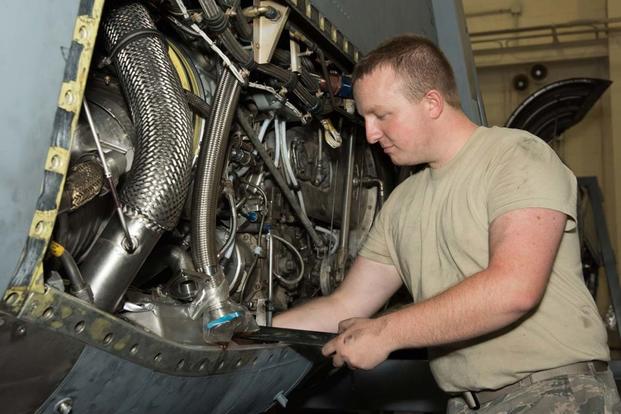The chief of the National Guard Bureau and lawmakers on Wednesday discussed new legislation that would amend a plan to convert the Guard's uniformed technicians into federal civilian employees -- a move state adjutants general argue will weaken that Guard's readiness to respond to domestic emergencies.
As part of the 2016 National Defense Authorization Act, current law requires 20 percent of all military technicians be converted to federal civilian employees by Oct. 1, 2017.
That's "one out of every five Title 32 military technicians to be converted to Title 5 federal civilian employees," said Sen. Susan Collins, a Maine Republican.
"Do you think that the 20 percent figure is too high," Collins asked Air Force Gen. Joseph Lengyel, chief of the National Guard Bureau, at an April 26 Senate Appropriations Committee hearing.
The subject has been a key concern among state adjutants general for the past two years, Lengyel said.
"The short answer is I think 20 percent conversion to Title 5 would degrade readiness," he said.
It's important that in the conversion, "people that are converted to Title 5 are not those people that are in billets that would deploy with our warfighting units to go to war because we want those best, most highly skilled full-time employees to deploy to war," Lengyel said.
A second concern is that these full-time technicians "are also military members who are there to operate in domestic response capabilities, so if they are no longer at a military position, the adjutants general are concerned that they would no longer have them to respond for floods or other emergency response capabilities, and that is a valid concern," Lengyel added.
Newly introduced legislation in both the House and Senate sets a new conversion target of 4.8 percent -- the level recommended by the Department of Defense in December.
"We do have a bill to fix this, and I encourage all of us to jump on board," said Sen. Jonathan Tester, a Montana Democrat. "Hopefully, we get this fixed because I don't want to jeopardize your readiness. It is critically important, I believe, to the country."
Governors across the country have voiced their support for the legislation, said Connecticut Gov. Dannel Malloy, co-chair of the Council of Governors.
"The 20 percent conversion seriously undermines our ability as state executives to respond quickly to emergencies and to keep our citizens safe," Malloy said in an April 25 National Governors Association press release. "We hope Congress will hear us and resolve this critically important issue."
-- Matthew Cox can be reached at matthew.cox@military.com.




























